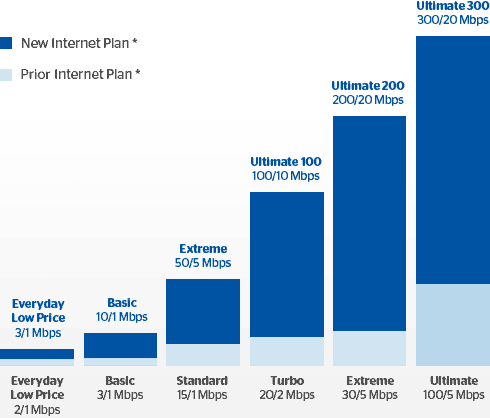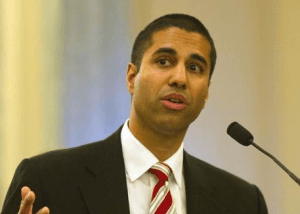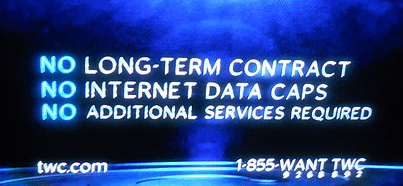
August 19, 2015
Hon. Kathleen H. Burgess
Secretary, Public Service Commission
Three Empire State Plaza
Albany, NY 12223-1350
Case Number: 14-C-0370
Dear Ms. Burgess,
After years of allowing the telecommunications industry in New York to operate with little or no oversight, the need for an extensive and comprehensive review of the impact of New York’s regulatory policies has never been greater.
Let us remind the Commission of the status quo:
- As Verizon winds down its FiOS initiative, other states are getting cutting-edge services like Google Fiber, AT&T U-verse with GigaPower, CenturyLink Prism, and other gigabit-speed broadband service competition. In contrast, the largest telecommunications companies in New York have stalled offering better service to New Yorkers.
- Time Warner Cable has left all of upstate New York with no better than 50/5Mbps broadband – a top speed that has not risen in at least five years.
- Frontier Communications has announced fiber upgrades in service areas it is acquiring while its largest New York service area – Rochester, languishes with copper-based ADSL service that often delivers no better than 3-6Mbps, well below the FCC’s minimum 25Mbps definition of broadband.
- Verizon Communications, the state’s largest telephone company, is accused of reneging on its FiOS commitments in New York City and has left upstate New York cities with nothing better than DSL service, giving Time Warner Cable a monopoly on 25+Mbps broadband in most areas. It has also talked openly of selling off its rural landline network or scrapping it altogether, potentially forcing customers to an inferior wireless landline replacement it calls Voice Link.
As the Commission is also well aware, there are a number of recent high-profile issues relating to telecommunications matters that have a direct impact on consumers and businesses in this state – some that are currently before the Commission for review. Largest among them is another acquisition involving Time Warner Cable, this time from Charter Communications. That single issue alone will impact the majority of broadband consumers in New York because Time Warner Cable is the state’s dominant Internet Service Provider for high speed Internet services, especially upstate.
These issues are of monumental importance to the comprehensive examination and study of the telecommunications industry in New York promised by Chairwoman Audrey Zibelman. The Charter-Time Warner Cable merger alone has the potential of affecting millions of New York residents for years to come.
Although this study was first announced to Speaker Sheldon Silver, the Honorable Jeffrey Klein, and the Honorable Dean Skelos in a letter on March 28, 2014, followed up by a notification that Chairwoman Zibelman intended to commence the study within 45 days of her letter of May 13, 2014, the first public notice seeking comments from stakeholders and consumers was issued more than a year later on June 23, 2015 (less than two months ago), with comments due by August 24, 2015.
With respect, providing a 60-day comment window in the middle of summer along with a handful of public hearings scattered across the state with as little as three weeks’ advance notice is wholly inadequate for a broad study of this importance. The Commission’s ambitious schedule to contemplate the state of telecommunications across all of New York State will likely be shorter than the review of the 2014-2015 Comcast-Time Warner Cable merger transaction which started May 15, 2014 and ended April 30, 2015.
We have heard from New York residents upset about how the Commission is handling its review. One complained to us the Commission had more than a year to prepare for its study while giving New York residents short notice to attend poorly advertised public hearings in a distant city, and two months at most to share their feelings with the Commission in writing. One woman described having to find a hearing that was, at best, 60 miles away and located at a city hall unfamiliar to those not local to the area, where suitable parking was inconvenient and difficult as she attempted a lengthy walk to the hearing location at the age of 69.
Several of our members also complained there are more suitable public-friendly venues beyond paid parking downtown city administration buildings or deserted campuses in the middle of summer break. Many asked why the Commission does not seem to have a social media presence or sponsor live video streaming of hearings where residents can participate by phone or online and avoid inconvenient travel to a distant city. Perhaps the Commission could be enlightened to see how New York’s telecommunications companies actually perform during such a hearing.
While we think it is very useful for the Commission to have direct input from the public, we are uncertain about how the Commission intends to manage those comments. We were disappointed to find no public outline of what the Commission intended to include in its evaluation of a topic as broad as “the state of telecommunications in New York.”
Too often, providers downplay service complaints from consumers as “anecdotal evidence” or “isolated incidents.” But if the Commission sought specific input on a topic such as the availability of FiOS in Manhattan, consumers can provide useful input on the exact location(s) where service was requested but not provided.
If the Commission received information from an incumbent provider claiming it was providing broadband service to low income residents, consumers could share on-point experiences as to whether those claims were true, true with conditions the Commission might not be aware of (paperwork requirements, onerous terms, etc.) or false.
If the Commission sought input on rural broadband, providers might point to a broadband availability map that suggests there is robust competition and customer choice. But the Commission could learn from residents asked to share their direct experiences that the map was inaccurate or outdated, including providers that only service commercial customers, or those that cannot provide service that qualifies as “broadband” by the Federal Communications Commission.
A full and open investigation is essential to finding the truth about telecommunications in New York. The Commission needs to understand whether problems are unique to one customer in one part of the state or common among a million people statewide. We urge the Commission to rethink its current approach.
New Yorkers deserve public fact-finding hearings inviting input on the specific issues the Commission is exploring. New Yorkers need longer comment windows, more notice of public hearings, and a generous extension of the current deadline(s) to allow comments to be received for at least 60 additional days.
Most critically, we need hearings bringing the public and stakeholders together to offer sometimes-adversarial testimony to build a factual, evidence-based record on which the Commission can credibly defend its oversight of the telecommunications services that are a critical part of every New Yorker’s life.
The Commission’s policies going forward may have a profound effect on making sure an elderly couple in the Adirondacks can keep a functioning landline, if affordable Internet will be available to an economically-distressed single working mother in the Bronx, or if upstate New York can compete in the new digital economy with gigabit fiber broadband to support small businesses like those run by former employees of downsized companies like Eastman Kodak and Xerox in Rochester.
Yours very truly,
Phillip M. Dampier
Director


 Subscribe
Subscribe
 One 1929 bottle initially valued at $15,000 was re-estimated downwards by Frantze to $5,000 after he found an appraiser who valued it at a lower amount.
One 1929 bottle initially valued at $15,000 was re-estimated downwards by Frantze to $5,000 after he found an appraiser who valued it at a lower amount. Time Warner Cable is nearing the end of its $60 million “Maxx” upgrade of San Antonio, company officials said in a news release.
Time Warner Cable is nearing the end of its $60 million “Maxx” upgrade of San Antonio, company officials said in a news release.




